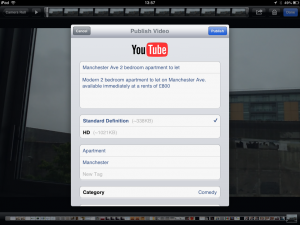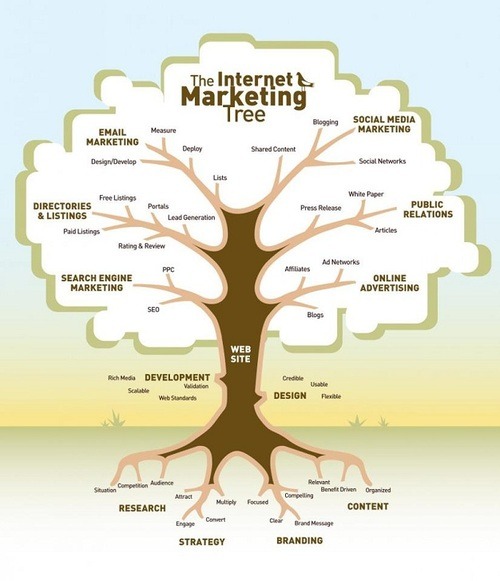So now that you have your Google Analytics set up, let’s focus on getting more visitors to your site.
Google places is a great way to build traffic to your site for FREE. Google places (map listings ) are now placed with the organic search results (non-paid results), with many Place pages located near the top of the results page. It will also increase your presence, giving you a boost in your organic search traffic. By setting up your Google places page you are ensuring your information is easily found and potential customers can find out more information on your businesses.
1 – Make or claim your Google Places Page
Your business may already have a Places page, even if you never set one up. Search for your brand name to see if one already exists. If there is a listing for your business, click to the place page and look for the “business owner?” link, then follow the instructions to claim it. If there is no places page for your business already, then start a new one at google.com/places.
2 – Verify Your Google Places Page
Next, verify your Google Places Page. You must verify that you are the business owner or else your listing will not be trusted by search engines. Unless it is verified, your listing might not appear in the search results, or how often it appears may be limited.
Verifying is simple, but it will take some time. When setting up your Places page, follow the instructions. Alternatively, click the ‘verify’ link when logged in to your places account. You will have to wait for a postcard to be delivered to your business address within 2-3 weeks (though you may get the option to receive a phone call instead).
Once your Places page is verified, you should optimise your page and make it easier for potential customers to find you.
- Include keywords in the description of your Google Places page – Describe your business; keep it short and sweet. Include some keywords. Use Google Adwords keyword planner (this was Keyword tool) to help you to better understand what potential customers are typing in when they search for a service like yours. Don’t go for overkill though, just a few relevant keywords should do the trick!
- Optimise your business title – In Google Places your business name should be your title. This could also include some information on your location. Google Adwords keyword planner should be useful again here.
- Choose some appropriate categories – You can include up to five categories and this matters, however you should include only those categories which are relevant to your business.
- Complete your Places page as much as possible – The more complete you can make your Google Places page the better. This gives you an edge over less complete pages in Google’s eyes. Some information you may want to include is; your opening hours, additional agency information, links to your properties advertised on pportal sites, and social media links. All this will make your pages more appealing to potential clients too.
4 –Rankings for Google places
Citations and mentions are more important than links to your website within Google Places, it is widely believed. Measuring the ‘buzz’ around certain local businesses or sites can be difficult for search engines so they try to take into account any mentions online. This is becoming more popular with the use of smart phones. You can look for chances to gain citations through –
- Directories – Create a listing in any major directories; just be sure that your information is consistent across all listings you have online.
- Review sites – Reviews give search engines a signal that your business is a real place that is known and liked (or disliked) by real people. Try to get reviews from your landlords on your services online.
- Local Resources & Events Pages – Look for local directories, business listings, and event pages for opportunities to list your site. Check out competitors – visit their Google Places pages and see where their citations are coming from (you’ll see a list of links titled “more about this place” at the bottom of the page, which is a great place to start.)
5 – Optimize your website and be sure they can find you!
Good SEO for your website makes perfect sense as this willup your ranking in Google searches and attract visitors. This is also a good citation for your Google Places page. Include contact details in a prominent place on your website so that visitors can find them easily.




